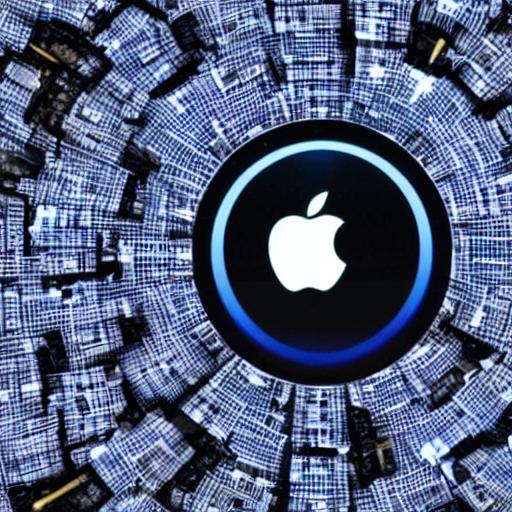It’s not simple to get an app listed in the Apple App Store, but it’s proven particularly difficult for cryptocurrency businesses and initiatives.
According to Apple’s former App Store director, that is not by chance.
Phillip Shoemaker, who co-wrote the App Store’s original rules with the late Steve Jobs, claims that those rules have been changed since he left, and in a way that he thinks is purposefully ambiguous. This, he claims, has enabled Apple to serve as a sort of gatekeeper, a position that was recently supported by a Commerce Department report. However, Shoemaker claims that it has also enabled Apple to maintain a very hard line against cryptocurrencies and NFTs in particular.
Apple struggled with cryptocurrencies from the start. They believed it to be a Ponzi scheme,” he said in an interview.
App Store History
Shoemaker, the CEO of Identity.com and a former executive at Apple from 2009 to 2016, says his initial goal was to make the App Store policies as simple as possible. The objective, according to him, was always to make the rules more clear-cut over time so that developers would know what they could and couldn’t do.
After all, a company’s success depends on whether it is allowed into the Apple or Google app stores. Additionally, a denial can result in serious consequences for app developers.
In relation to his interactions with irate programmers, Shoemaker claimed that he had hundreds of death threats. He had individuals sneaking into Apple and following him out to his car.
Shoemaker said that his app approvals would even lower the value of Apple’s stock in 2019. Shoemaker told, Jobs used to say he had the worst job at Apple because no matter what He accomplished, someone despised him.
The Apple App Store Guidelines were updated following Shoemaker’s retirement in 2016 by Apple’s legal department and longstanding Apple Fellow Phil Schiller, who now has control over the App Store. Shoemaker blames Schiller for what he sees as Apple’s hostile attitude toward cryptocurrencies.
They underwent a significant transition, in his opinion, just before He left, Shoemaker said.
Shoemaker claims that the rules were intentionally left undefined in the 2016 version.
“In the end, they made matters much more hazy and murky than before. We don’t need grey; we need black and white, he declared.
When questioned about Apple’s official position on cryptocurrency, a spokeswoman merely responded with a link to the portion of its App Store Review Guidelines devoted to cryptocurrencies, which outlines in five bullet points what crypto app developers may and cannot do on its platform.
The Crypto Puzzle
The Apple App Store has taken action against several crypto apps over the years that it believes are violating its guidelines. When Shoemaker was still employed by the business ten years ago, Coinbase’s app had a one-year ban on the Apple App Store.
When a reporter contacted Apple to find out why the Coinbase app was blocked in 2013, a spokesperson once more pointed toward the direction of the App Store Developer Guidelines.
According to a 2020 article by Coinbase CEO Brian Armstrong, Apple has historically been “extremely restrictive and antagonistic to crypto.” He later edited the tweet after explaining that some functionalities of the Coinbase app had been disabled.
NFTs, which are distinctive blockchain tokens that might denote ownership over accompanying metadata like art, metaverse land, or a membership pass to a special club, were addressed in the 2022 update to Apple’s App Store Review Guidelines.
The revised rules state that Apps may sell and sell services tied to non-fungible tokens (NFTs), such as minting, listing, and transferring, through in-app purchases. As long as NFT ownership does not unlock features or functionality within the app, apps may let users view their own NFTs.
As a result, buying NFTs through an app will cost you a hefty 30% fee from Apple, and any NFTs you can view through an app but weren’t able to buy in-app aren’t able to unlock any extra content or in-app features. The 30% cost cannot be avoided by users using any in-app workarounds provided by developers, such as opening an external link in a web browser.
When Apple started implementing its new NFT regulations in December 2022 and barred the Coinbase Wallet app until it deleted its NFT transfer feature, Coinbase found itself in difficulties once more. Because Apple intended to add its 30% fee to any Ethereum gas expenses, which Coinbase claimed was technically impossible, Coinbase’s app was prohibited, according to the company.
This is obviously not possible for anyone who comprehends how NFTs and blockchains operate, according to Coinbase. Even if they wanted to, they couldn’t comply because Apple’s proprietary In-App Purchase mechanism doesn’t handle cryptocurrency.
Shoemaker thinks that these new NFT regulations were written in a “harsh” manner, just like the rest of Apple’s payment policies.
Regarding Apple’s 30% in-app purchase fee, Shoemaker remarked, “It’s the bully who wants your lunch money.” That is simply the conclusion.








